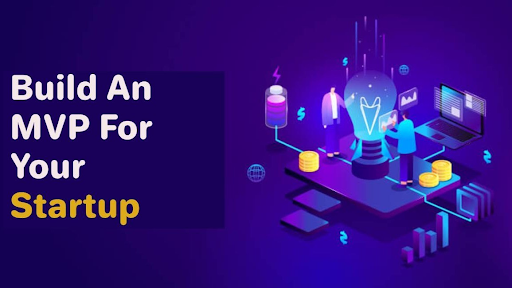What is the MVP in startup development?

Building a minimum viable product (MVP) is an effective way to validate your startup idea and establish its success in the marketplace. And it is quite important when you are thinking of standing out in the competitive startup ecosystem.
So, what is an MVP? How do you build an MVP? In this blog, we will discuss everything to ensure you have a thorough understanding while building mvp for startups.
Let’s Explore!
What is MVP in Startups?
So, What is MVP?- In simple terms, MVP, i.e., Minimum Viable Product, is said to be the most basic and simplest version of your product that can solve the user's problem. Also called a product that has enough features while engaging with early adopter-based customers, and properly validates the product at the early stage in the product development cycle.
In the MVP stage of a startup, founders generally prioritize speed and learning over perfection, so while you build an all-in-one product, instead of doing so, you can simply launch an MVP with the most essential features. And MVP development for startups is not only considered as the development strategy, but a right business mindset that prioritizes learning over perfection. Additionally, understanding how MVP compares to a prototype, the breakdown on poc vs prototype vs MVP is used to offer a clear understanding, thus choosing the right one at the starting point.
As per statistical reports, it has been noted that 42% of startups fail due to no market need, followed by out of cash, team issues, and timing. These pitfalls all start with one root cause-building things at the wrong time.
That’s when MVP helps in resolving such risks for the startups. Some of the impressive results that you get while building MVPs for startups are;
- Establish a Product Market Fit
- Saves Development Time & Cost
- Pre-early User Behaviour Analysis
A well-built minimum viable product can set your stage for growth, investment, and also for long-term success while establishing your business and reducing the risks of building new things. In the software industry, an MVP can help your product team receive user feedback faster, which can help you improve the product and test the ideas with the real users, resonating with the target market, as seen in the real-world examples of MVP in mobile app development.
Whether you are building a mobile app or a SaaS platform, a solid minimum viable product plan can be the ideal launchpad for your success.
Let’s see how MVP development for tech startups can be beneficial.
Benefits of MVP Development for Startups
Starting with small things can give you benefits; that’s when many successful startup founders choose MVP development to launch their ideas. Some of the top benefits are;
- Faster Market Entry
Speed matters while you think about launching an idea for your startup. It is like that, instead of waiting for months to perfect everything, a minimum viable product (MVP) can help your startup idea to deploy as fast as possible. This early launch is crucial in terms of the MVP stage of a startup, where experience from early users matters more than having a full-fledged product.
In the competitive market space, getting early market entry can help you capture the market share and also build a strong relationship with the users before anyone else. This results in testing you sooner, improving your product, and also staying ahead on the list.
- Minimized Risks
This seems to be one of the biggest advantages in the aspect of MVP development for tech startup. Building a full product with assumptions can cost you much if your market is not ready for it. On the contrary, with a mvp startup approach, you can test your unique ideas with real users, taking feedback at the earliest. If something doesn’t go right, you can easily make changes without running out of budget.
- Cost-Effective Development
Why should you spend more if your users may never need it? That time, the minimum viable product approach that focuses on establishing the essential things can save you costs. For startups, the lean method of MVP development can help you manage resources and ensure that every dollar adds value to your product, thus enhancing business productivity.
- Idea Validation
So, if you are still wondering, what is MVP? This is the best chance to check if the market needs an actual solution. Instead of guessing, now with the MVP stage of startup, you can get real feedback from the adopters.
The MVP Development for startups allows you to validate their idea before going all in, thus launching a minimum viable product can let you clearly understand what your users want from you, making it a real game-changer.
Now that you have understood the importance of MVP development for startups, let’s explore how to build an MVP for a tech startup and the costs.
MVP Development for Tech Startup: Step-by-Step Guide
So, building a minimum viable product (MVP) is not only about cutting expenses, but also thinking smart. With these step-by-step guide points, you will be able to create something useful that can be faster, scalable, and with minimal risks, that can enhance the productivity of your business process.
Here’s the full roadmap with steps to guide you in turning your startup idea into a minimum viable product that is faster and smarter.
- Market Research
So every minimum viable product starts with a deeper and greater understanding of the target market. You can start by identifying the issues that users face. Then, you should conduct interviews, run surveys, explore forums, and also review to discover what the potential users need. This first step helps you avoid common startup mistakes while you are building your product. In startup MVP development, knowing your targeted users can save time and also reduce costs.
- Value Proposition
It is very important to have a clear value from the start of your product development. Do you know what’s the single most important benefit your MVP can provide?- While defining in one sentence, the value proposition is everything starting from your feature selection to user messaging. The MVP startup version simplifies the workflow and also scales the business processes. Features prioritization decisions and sustained development aspect also depend on the MVP value proposition that tends to bring great productivity to your business.
- Core Features Prioritization
The actual idea of MVP development for a tech startup is to build what is essential. You must list out all the features of your ideal product, and step down into the basics. Using MoSCOW analysis, or simply having a scoring card, can guide you in the process of core features selection.
Your MVP must have the minimal features that can solve the user problems, thus giving your app much priority and importance.
- User Experience Design
Good Designs are not about aesthetics; it's all about how your users interact with the product. At the MVP stage of startups, your ultimate goal is to make the users navigate and understand the products with ease. You can start with using wireframes or clickable prototypes, and also make the interface much cleaner and intuitive for a better user experience. Even a basic one can let you gather valuable feedback and also improve faster during iterations.
- Tech Stack Selection
You should select the right technology for your product for rapid development, which also leads to higher scalability. Many of the MVP development services for tech startup founders recommend utilizing lightweight and flexible stacks.
Front End: React, Vue.js
Backend: Node.js, Django
Database system: Firebase, PostgreSQL
Deployment/Launch: AWS, Heroku
- Deployment
So, once you've built your MVP product, it's time for deployment. You should release your MVP to small targeted users, early adopters, email subscribers, and community testers. This final step can help you identify bugs, errors, understand the user behaviour, and also iterate on improvements if needed.
How Much Does it Cost to Build an MVP for Your Startup?
The cost of building a minimum viable product is basically based on several factors like the scope, features, team location, and the tech stack that has been integrated into it. On average, MVP development for startups ranges from $10,000-$250,000 or even more based on the complexity.
Some of the factors that tend to influence the cost are
- Complexity—Features & Types
- Design Requirements
- Backend Infrastructure
- In-house vs. outsourcing to MVP development for tech startup
A simple MVP startup version with basic functionalities costs much less and is ideal for validation. On the contrary, while approaching a much more complex MVP, the cost is higher with more scalability.
Final Thoughts
Understanding what is MVP in startup development is the key to launching faster, learning quicker, and also building a smarter product. Instead of taking everything at once, it is always better to have a minimum viable product that mainly allows you to validate your unique ideas with the real use cases, thus maximizing the ROI & scalability.
So, whether you are exploring MVP development for tech startup ideas or thinking of scale, having the right MVP app development services can help you establish greater productivity and much more success in your MVP journey.
Note: IndiBlogHub features both user-submitted and editorial content. We do not verify third-party contributions. Read our Disclaimer and Privacy Policyfor details.





